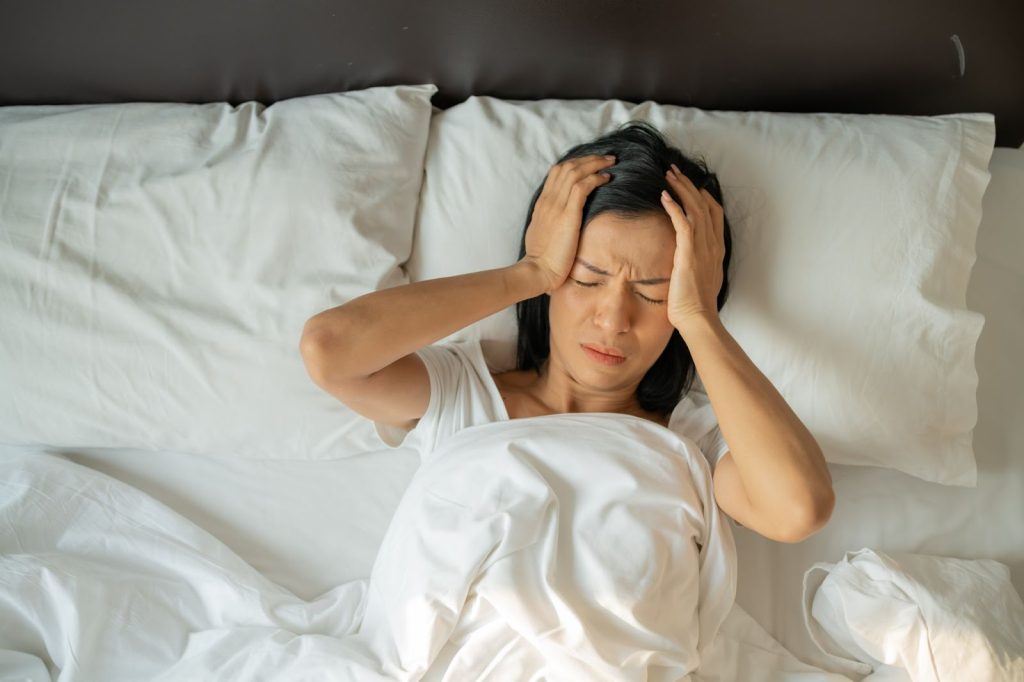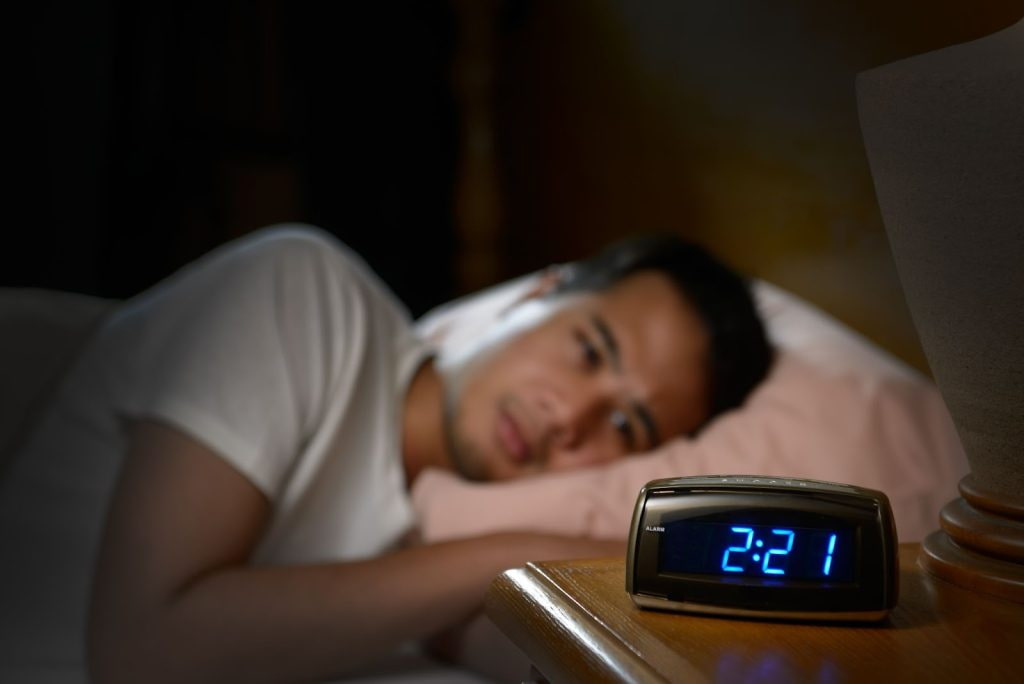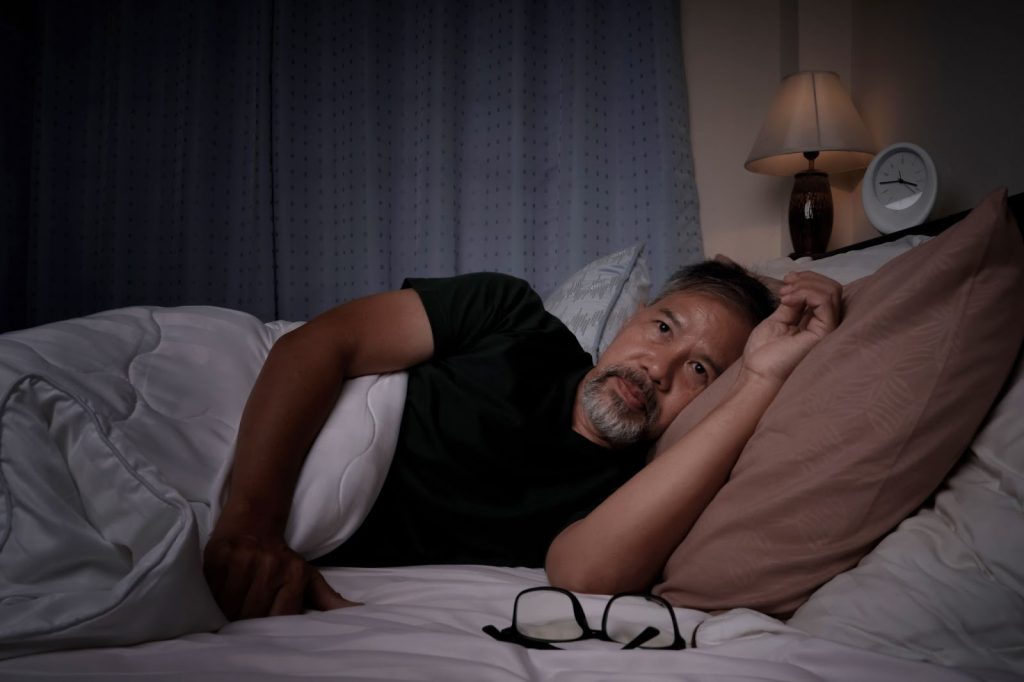Like water, sleep is among the top necessities of the human body. If it gets hampered or there is a lack of proper sleep, it directly impacts the overall health physically and mentally. This generally happens because of several types of sleep disorders in adults.
The disorders also negatively change behavioural and cognitive patterns. Yet, sleep problems and disorders are so common that over 75% of adults face these.
Also called somnipathy, the disorder in sleep can be treated with proper medication, Online yoga courses, counselling, meditation, etc. In this write-up, let’s talk about the main types of sleep disorders, symptoms, causes, diagnosis, and treatment.

What is Sleep Disorder? Meaning & Definition
Sleep is the most important biological function of the human body. The majority of the internal organs work actively while we sleep. Growth is another thing that happens during sleep.
According to sleep disorder definition by psychologists, any condition that hinders the sleeping process is known as a sleeping disorder. Doctors have figured out around eighty medical and physiological conditions contributing to the different types of sleep disorders in psychology.

An improper sleep cycle obstructs a person’s social, professional, and educational life. Seven hours of regular sleep is recommended as a part of a good lifestyle.
Sleep disorder is not an age-related problem but mostly affects people of a certain age group (65 or above).
In younger individuals, an unhealthy lifestyle and dreadful circadian rhythm are the leading causes of sleeping disorders.
Important Sleep Statistics You Must Know
Based on several research reports and studies, we have curated some crucial sleep disorder statistics that you must know.
- Adults spend around 2 hours every night dreaming.
- Nearly 50% of the people in the US report sleepiness during the day for at least three days a week.
- Around 30% of adults face chronic insomnia sleep disorder.
- Females are at a 40% higher risk of lifetime insomnia compared to men.
- Over 10% of adults struggle with restless leg syndrome (RLS).
- If the body weight increases by 10%, it can 6x increase the risk of obstructive sleep apnea (OSA).
- In the US, drowsy driving causes over 6,000 road accidents per year.
Common Sleeping Disorder Symptoms
There are plenty of sleep disorder symptoms, which differ for different individuals. The most common ones are:
- It takes 30+ minutes to sleep
- Sleepiness while driving
- Disturbed sleep cycle and rapid eye movement in sleep
- Difficulty inhaling and exhaling while asleep
- Lack of focus on daily activities
- Sleep paralysis
- Pain in muscles and bones
- Unhealthy digestion
- Taking too many naps in a day
- Memory related issue
- Sudden weight loss or weight gain
Apart from these symptoms of sleeping disorders, there are many others that people can experience.

Main Types of Sleep Disorders in Adults
Over 80 types of sleep disorders are there, according to psychology. We will discuss the four most common ones here.
1. Insomnia
It is the most prevalent sleep disorder affecting 270 million people worldwide. A person may feel difficulty sleeping and waking up during rapid eye movement or REM sleep disorder. Chronic insomnia will make you unhealthy and weak, deteriorating working efficiency and overall well-being.

a) Acute Insomnia
Many people experience a short attack of insomnia in their life, officially termed acute insomnia.
Stress and life problems are major causes of acute insomnia. Visit a doctor when the problems disrupt your normal routine work. Other medical conditions and certain medications can trigger acute insomnia.
b) Chronic Insomnia
When a person has suffered from difficulty sleeping for the last two months or more, it can cause this type of insomnia sleeping disorder. Certain improvements in daily habits can significantly improve your sleeping problems.
2. Sleep Apnea
Sleep apnea is a more weighty sleeping disorder wherein a person finds it difficult to breathe while asleep. Some people almost halt their breathing during deep sleep, which can damage organs in the body.
Sleep apnea is further classified into two sub-categories: obstructive sleep apnea and central sleep apnea.
a) Obstructive Sleep Apnea
An obstruction in the windpipe causes the throat muscles to activate and make breathing difficult. This is often characterized by loud snoring and wheezy sound during sleep.
b) Central Sleep Apnea
It is a neurological issue and is among the most common sleeping disorders in adults. The brain stops sending signals to the lungs. Thus, the breathing mechanism disturbs. It is very dangerous as it can cause heart failure.
3. Restless leg syndrome
It is a condition in which people develop the urge to move their legs for no reason. Mostly, officegoers suffer from this disease. The nerves in their legs feel lethargic and rested.
They need movement for better functioning. This seriously disrupts sleeping patterns and is one of the main sleep disorder types.
4. Necrolapsy
It is a neural disorder wherein a person craves sleep throughout the day and falls asleep anywhere at any time. Narcolepsy is very serious as it can cause major accidents that may be life-threatening.
5. Hypersomnia
It is a disorder that defines the feeling of excessive sleepiness. If a person has this disorder, he/she will find it very difficult to stay awake during the daytime. The person will find himself/herself sleepy the entire day and may fall asleep at the work desk, while driving, or while doing other activities.
Other Sleeping Disorder Types
Apart from the above-mentioned classification, some other sleeping disorder names are:
- Snoring
- Bruxism
- Sleep hypoventilation
- Sleep terrors
- Sleep paralysis
- Idiopathic hypersomnia

Most Common Reasons & Causes of Sleep Disorders
There is no certain reason for sleep disorders. Different people have their reasons and conditions that disrupt the regular sleep cycle. The causes can be neurological, physical, mental, and medical.
The most common sleep order reasons are:
1. Physical
Fracture, pain, any injury.
2. Medical
Kidney problems, heartburn, thyroid, allergies.
3. Psychological
Stress, depression, anxiety.
4. Bad habits
Drug addiction or alcoholism.
5. Genetic disorders
MEIS1 gene disorder, familial sleep phase syndrome.
6. Certain medications
Alpha-blockers, corticosteroids, antagonists, topiramate.
7. Age-related sleep disorders
More than 50% of people suffering from sleep disorders are above 65 years of age.
Diagnosis of Sleep Disorders
Sleep disorders in adults are the leading cause of anxiety and depression. It is essential to diagnose the reasons.
Wondering how do doctors diagnose sleep disorders?
A doctor or physician would perform several medical and physical examinations to rule out sleep disorders. Initially, the patient discusses the problem with the doctor.
The doctor may ask a question from the patient’s family member or bed partner. Their observation would help the doctor determine the patient’s medical and sleep history.
The doctor would advise you to prepare a sleep diary. You have to write down your sleeping habits for your studies. A typical physical exam known as a polysomnogram is a major test to rule out a sleep disorder.
The doctor would probably understand:
- Rapid eye movement of a patient
- Blood pressure
- Electroencephalogram of patient
- Muscle activity and electrical impulses.

Effective Sleep Disorders Treatment
The nature of treatment depends on the causes of sleep problems. Few would require medical assistance, while others would require psychological counselling.
1. Medication
Sleep disorders like narcolepsy can only be resolved with medication.
2. Exercise and Yoga
Go for authentic online yoga courses to keep your body physically active and improve overall health.
3. Meditation
It relieves stress and helps to increase focus.
4. Counselling
Psychological disorders need proper counselling.
5. Right Sleeping Environment
It is difficult to sleep in loud noise or bright light. A dark and silent room is suitable for sleep.
6. Regulating Disorders That Cause Sleepiness
Treat other medical conditions that promote sleep disorders.
7. Adequate room temperature
The too-cold or too-hot temperatures are not suitable for deep sleep.
Conclusion
Different types of sleep disorders affect the quality of life. It impacts a person’s mental health and causes many other health issues. It is essential to control the situation in the initial stages. Enroll in reliable online yoga program and visit a doctor if you face any symptoms. Keep yourself engaged in the daytime and avoid taking naps. Reduce overthinking and take proper treatment.


